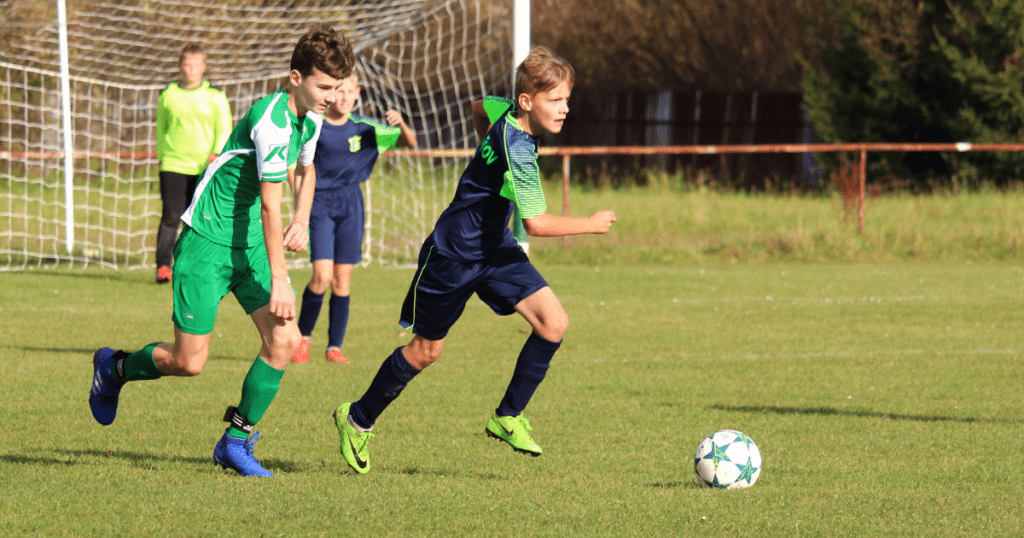Managing a team at a grassroots football tournament can be an incredibly rewarding experience — but it’s not without its challenges. Whether you’re a volunteer parent-coach or a more seasoned grassroots manager, tournament days are full-on: early starts, unpredictable games, and a dozen things to juggle. But with the right planning and mindset, it can also be one of the most enjoyable parts of your football season.
Here’s a practical guide to help you get the most out of the day — for yourself, your players, and your supporters.
Start with Solid Preparation
Pick the Right Squad
Tournament football can be fast and relentless. You’ll often be playing several short matches back-to-back, so it’s important to take a well-balanced squad. Look for players with good fitness levels, a team-first attitude, and ideally, a bit of versatility. Having someone who can slot into a couple of different positions can really help when you’re rotating players throughout the day.
Be honest and fair when selecting your squad. Make sure everyone understands how decisions are made — especially if some players won’t get as much time on the pitch as others. Managing expectations early avoids awkward conversations later.
Get the Admin Sorted
It’s not the glamorous side of football, but getting your paperwork done properly is crucial. Double-check that registrations, consent forms, and any medical info are sorted well before the tournament. Also, read the rules! Every competition is slightly different — some have specific substitution policies, squad sizes, or equipment requirements. Being clued-up in advance saves hassle on the day.

Communicate Clearly
Talk to Your Players
Have a quick meeting or chat with the squad before the tournament. Go over the basics — arrival time, kit, behaviour, and what you expect from them in terms of attitude. It’s a good chance to remind them what the day’s really about: playing as a team, enjoying themselves, and showing respect, win or lose.
Be upfront about things like playing time and rotations. Kids tend to respond better when they know what to expect.
Keep Parents in the Loop
Parents and carers are key to making the day run smoothly — they often handle transport, snacks, and morale! Share all the key details with them ahead of time: schedule, location, kit list, parking info, and any entry fees. It’s also worth having a quick word about sideline behaviour — staying positive and letting the kids play their game.
Be Organised on the Day
Get There Early
Aim to arrive with plenty of time to spare. It gives everyone a chance to settle in, find the right pitch, and have a proper warm-up. It also lets you deal with any last-minute changes or surprises calmly.
Bring a checklist of essentials:
- Match balls and pump
- Bibs and cones
- First aid kit
- Water bottles and snacks
- Spare kit or socks
- Copies of team registration or consent forms
- A folding chair or gazebo if it’s a long day
Manage the Schedule
With games coming thick and fast, plan ahead for player rotations. Make sure everyone gets a fair run-out, especially at younger age groups. Overplaying your star striker in the group stage might cost you when they’re exhausted by the semis.
Try to keep the rotation balanced and make changes during games if needed. Have a simple system written down so you’re not scrambling between matches.

Stay Flexible with Tactics
Read the Game
Tournament football is unpredictable. One match might be against a team that passes beautifully, the next could be all about long balls and physicality. Be ready to adapt how your team plays — sometimes it’s about grinding out results, sometimes it’s about encouraging creative play.
Don’t over-complicate things, especially with younger age groups. Keep your instructions clear and positive.
Manage Emotions
Tournaments can get heated — for players, coaches, and parents. Try to stay calm, even when decisions go against you. Set the tone by treating referees with respect and encouraging your players to do the same. They’ll follow your lead.
Look After Your Players
Keep an Eye on Wellbeing
Make sure the players stay hydrated throughout the day, especially if it’s hot or the games are intense. Pack plenty of water and some light snacks like bananas or cereal bars to keep energy levels up.
Watch out for signs of fatigue or minor knocks. If someone looks like they’re struggling, give them a break – even your goalkeeper. The last thing you want is an injury because someone played too long without a rest.
Promote Good Behaviour
Let the players know that how they act — towards officials, opponents, and each other — is just as important as how they play. If someone loses their temper or behaves badly, deal with it calmly and privately. Use it as a learning opportunity, not a chance to embarrass them in front of the group.

Handle Wins and Losses Well
Take the Highs with the Lows
Not every game will go your way. That’s part of football. Help your team deal with defeat by focusing on the positives: their effort, attitude, or how they worked together. Steer clear of blaming individuals or talking tactics too heavily right after a loss.
Likewise, when you win and come away with a beautiful football trophy, celebrate respectfully. Praise the performance, not just the result, and encourage the kids to shake hands, thank the referee, and show class — win or lose.
Wrap it up Properly
Reflect with the Team
After the last whistle, take a few minutes to gather the group together. Talk about what they learned, what they enjoyed, and what they want to improve. Ask them for their thoughts — it makes them feel part of the journey and shows you value their opinions.
Say Thank You
Don’t forget to thank the players, parents, and anyone who helped out during the day. A short message in the team group chat or a quick post on social media goes a long way in building that team spirit.
Build on It
Use the tournament as a stepping stone. Whether your team won it or went out early, there’s always something to take away. Maybe it’s working on defending set pieces, or maybe it’s building confidence on the ball. Take those lessons into training and use them to grow.
Final Thoughts
Grassroots tournaments are about more than trophies. They’re about giving kids a chance to compete, learn, and enjoy the game with their friends. As a manager, your job is to create an environment where they feel supported, encouraged, and proud to be part of the team — no matter the result.
Lead by example, stay organised, and keep the focus on development and enjoyment. If you can do that, you’ll not only manage the tournament well — you’ll help shape players who love the game for life.
